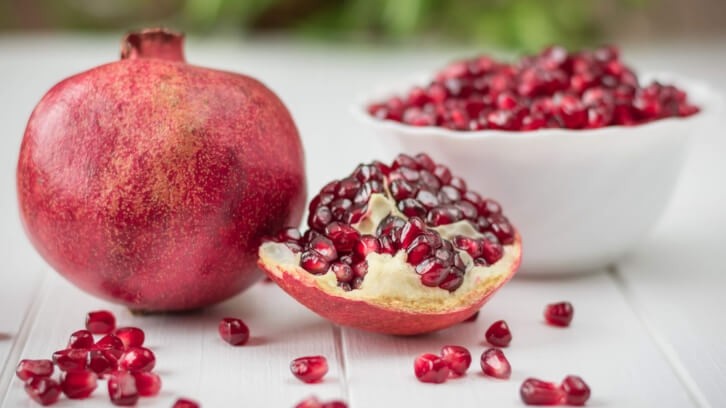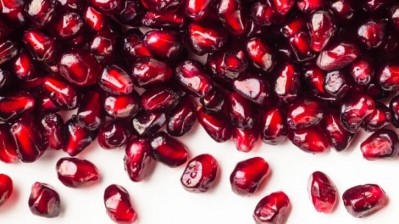Verdure’s pomegranate extract shows potential for gut microbiome support and mitochondrial health

Data published in Foods indicated that four weeks of supplementation with 250 mg per day of the Pomella-branded ingredient also increased levels of circulating urolithins, compounds linked to improved mitochondrial function and healthy aging.
“Our findings suggest that punicalagin standardized pomegranate extract consumption supports a healthier gut and gut–body communication,” wrote scientists from Sacramento, CA-based Integrative Skin Science and Research, the University of California-Davis and California Northstate University.
Pomella
Since Verdure Sciences introduced Pomella over a decade ago, the extract has been incorporated into a wide range of skin, brain, cardio-metabolic and joint health products, and dozens of studies substantiate the efficacy of its bioactive profile.
The new study was welcomed by Kristen Marshall, digital marketing manager with Verdure Sciences. “The support for the gut microbiome, short chain fatty acids, metabolic health, mitochondrial and cellular support are all areas we have seen previous data support,” she said.
“This study helps bolster an already interesting story—making it much more compelling now. Tremendous interest continues to build for gut and digestive health, skin support and beauty from within as well as specific gut and skin microbiota, and we are honored that Pomella is so well poised to tackle this category’s needs.”
Study details
The new double-blind, placebo-controlled, randomized clinical trial included 18 healthy men and women between the ages of 25 and 55 years who were randomly assigned to receive either 250 mg/day of the proprietary pomegranate (Punica granatum) extract or a placebo for four weeks.
Results showed that while there were no significant changes in the gut microbial diversity in either group, the pomegranate extract did significantly increase the relative abundance of Coprococcus eutectus, Roseburia faecis, Roseburia inullnivorans, Ruminococcus bicirculans, Ruminococcus calidus, Faecalibacterium prausnitzii, Methanobrevibacter smithii and Collinsella aerofaciens.
In addition, significant increases in the production of the short chain fatty acids propionate (162% increase) and acetate (38% increase) were also reported for the pomegranate extract group compared to placebo. On the other hand, no significant changes were recorded for butyrate or hexanoate levels.
Pomegranate extract supplementation also led to significantly higher levels of circulating urolithin A compared to the placebo group, the researchers said.
Urolithins are compounds generated by gut microflora from ellagitannins found in pomegranate. The compounds are hydrolyzed in the stomach into ellagic acid, which is subsequently converted by the gut microflora into urolithins. Published research indicates that urolithin A may improve mitochondrial function by stimulating mitophagy, a process by which damaged mitochondria are recycled to permit a renewal with healthy mitochondria.
The researchers noted that the study was at pilot scale with a limited number of participants (most of whom were women), and therefore it is not clear if there is a gender aspect to the observed benefits.
“The results here warrant future studies with an expanded cohort of participants that should include more men as part of the study group,” they wrote. “Since ellagitannins are water-soluble polyphenols that are easily absorbed in the digestive tract, the resulting effects of PE supplementation may be short-lived. More research is needed to determine the optimal frequency of dosing for PE supplements.”
Source: Foods
13(1): doi: 10.3390/foods13010015
“Prospective, randomized, double-blind, placebo-controlled study of a standardized oral pomegranate extract on the gut microbiome and short-chain fatty acids”
Authors: Sivamani RK et al.














